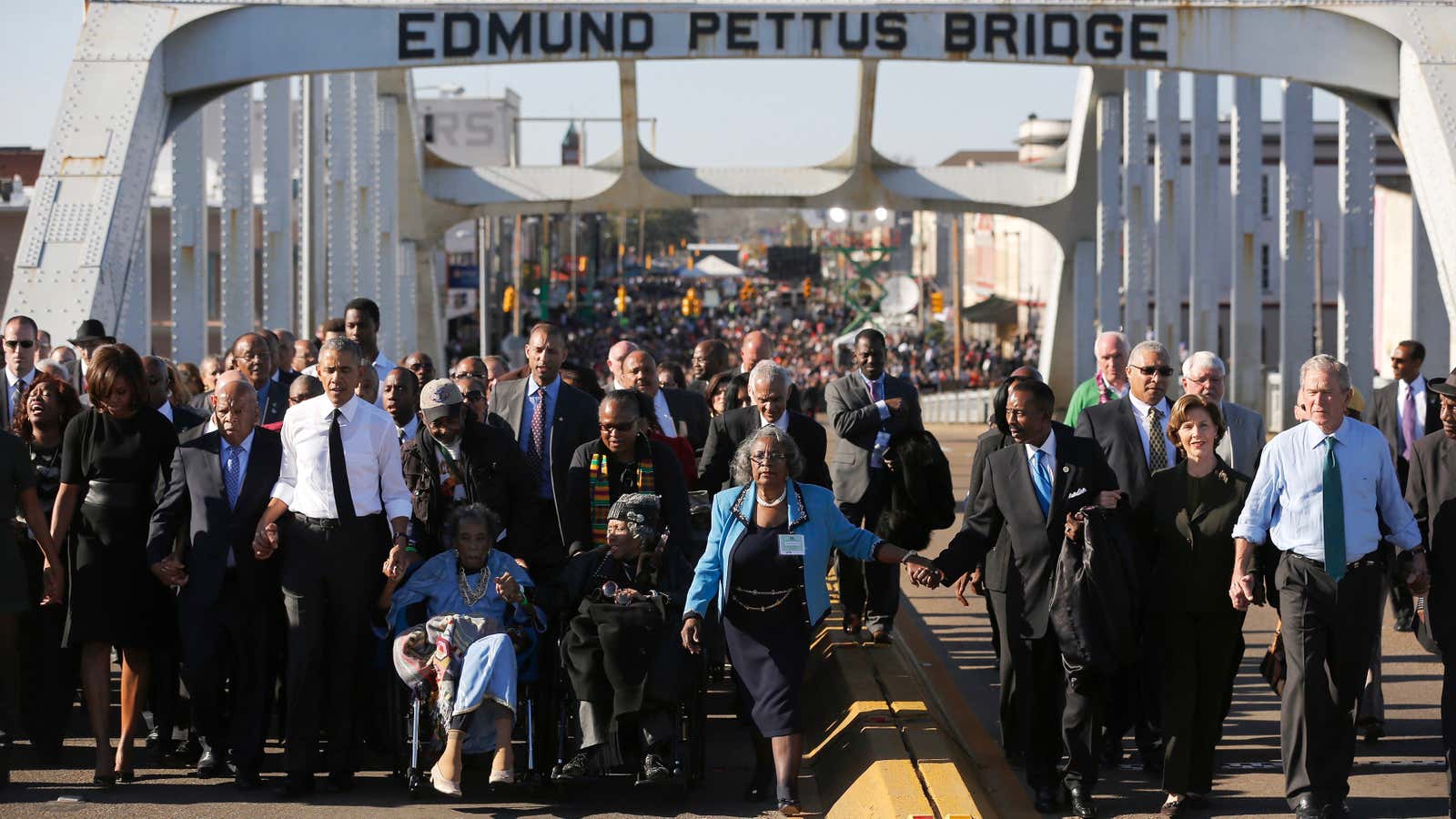The bid for the White House exposed a United States more divided, ideologically and culturally, than liberals had dared to imagine.
In the liberal view, a fear of foreigners stoked by Donald Trump and his supporters largely caused this split. But Election Day revealed that the left’s disdain for conservatives, as articulated by Hillary Clinton and her champions, had become its own brand of xenophobia.
Liberals, aghast at the results, scoured polling data, social media, and their souls, asking how they didn’t see Trump’s win coming. Journalists everywhere, including at this publication, feverishly took to dissecting the mysterious Trump voter with fresh eyes.
Technology and fake news were partly to blame. But so too was the fact that the liberal machinery had resorted to fearing Trump voters, instead of courting them. As Frank Rich noted in New York Magazine, “[N]othing symbolized the culture gap of this election year more acutely than the stunt of a liberal Times columnist interviewing an ‘imaginary’ Trump voter rather than a real one.”
By definition, the word xenophobia is not specific to immigrants. According to Merriam-Webster, it refers to a fear of the foreign in the sense of strange or unknown, an “elegant-sounding name for an aversion to persons unfamiliar.” Xenophobia and xenophobe are derived from two Greek terms: xenos, meaning “stranger” or “guest” and phobos, meaning ”fear” or “flight.”
Political scientist Roger Petersen defines the fear of “other” in ethnic conflicts as “resentment,” which arises when a privileged group in society cedes influence to a previously less powerful group. Liberals took Trump voters to be the declining privileged group, which would cede its influence in a minority-majority nation.
But minorities don’t vote one way or identify monolithically. Clinton’s campaign failed to grasp what many of these voters felt, irrespective of race or creed: that a secularist, borderless view of the future didn’t serve them. As it turned out, Trump won more votes from blacks, Latinos, and Asian Americans than Mitt Romney had in 2012, and they were ascendant.
As Ajay Singh Chaudhary recently wrote about the liberal fallacy in Quartz, “If you were under the strange impression that life has been getting better for the past 40 years, you must understand that neoliberalism—in all its already existing racist glory, with its vicious class warfare against the poor and working class—was working for you. It is your class politics; it is your race politics. And those politics—barely sputtering through the Obama years—have finally crashed.”
Clinton exposed this kind of bias when she dismissed Trump supporters as a ”basket of deplorables” defined only by their ”racist, sexist, homophobic, xenophobic, Islamaphobic” tendencies. “They are irredeemable,” she said, “but thankfully they are not America.” Obama made a similar gaff in 2008 when talking about small town voters at a San Francisco fundraiser: “They get bitter, they cling to guns or religion or antipathy to people who aren’t like them or anti-immigrant sentiment or anti-trade sentiment as a way to explain their frustrations.”
The Independent, smarting over Brexit, worried for Clinton. ”Dismissing large swathes of the electorate as worthless, unthinking fools really doesn’t seem like the smartest tactic right now.” Slate’s Helaine Olen echoed the sentiment in the wake of Trump’s victory: ”You can harbor racist thoughts and rightly perceive your economic prospects have dropped or at least flatlined.”
Such elitist blunders by Clinton and her surrogates ultimately convinced many working-class voters that the quintessential rich kid, Trump, is one of them.
In this time of alienation, fear of strangers has transcended the cultural and political divide. In falsely claiming to promote an inclusive worldview, Clinton assailed too many Americans. On the election’s eve, liberals winked wryly at each other, only to discover they’re the ones who are out of touch.
